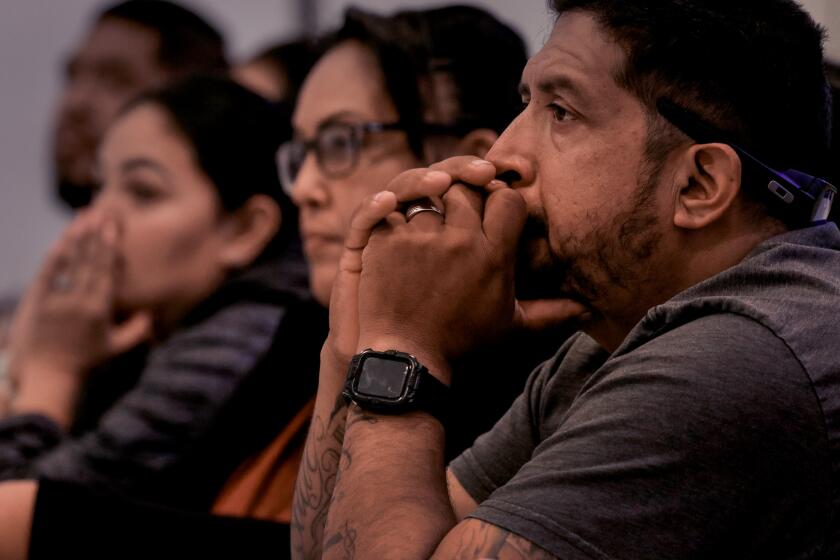Money for nothing
PROSPERITY CAN SOMETIMES CREATE as many problems as it solves. Just ask the state of California and the mental health departments of its 58 counties, which are arguing about money they didn’t think they’d have. It’s hardly the worst predicament -- but that doesn’t mean it shouldn’t be solved.
In 2004, Californians approved Proposition 63, the Mental Health Services Act, adding a 1% tax on personal income of more than $1 million. The state collects the money and passes most of it on to counties, which use it to pay for services for various groups, including the chronically homeless. Last fall, each county in the state filed an application detailing how it wanted to spend the money for the next three years, and most got their first checks in the spring.
So far so good. But thanks to a healthy economy and a rash of new Silicon Valley millionaires, the state has about $1 billion extra to distribute, for a total of more than $3 billion over the next three years. The counties, however, will not be getting that windfall. State officials say that up to half of the money may go into a rainy-day fund; the rest will eventually reach the counties, but not until they can prove they can spend it effectively .
It’s hard to argue with the notion of a rainy-day fund, especially considering that revenues from such a tax are likely to be volatile. But when voters approved Proposition 63, it was with the understanding that local mental health departments would have ultimate control over how the funds would be spent.
County officials know better than state bureaucrats who needs care in their communities and which local mental health organizations can best provide it. After the passage of the Mental Health Services Act, every county had to hold a series of community meetings and build a consensus about its plans before it could apply for funding. The law also requires counties to evaluate the programs they are supporting.
In Los Angeles County, which receives the largest amount of money from Proposition 63, about $70 million is benefiting 18,000 adults and children this year, with programs such as drug treatment and counseling for children leaving foster care. If the state were to release the extra money, L.A. County could receive hundreds of millions of dollars more. The state should work with L.A. County, and the rest of the state’s counties, to help as many Californians as possible as soon as possible.
More to Read
Get the L.A. Times Politics newsletter
Deeply reported insights into legislation, politics and policy from Sacramento, Washington and beyond. In your inbox three times per week.
You may occasionally receive promotional content from the Los Angeles Times.










